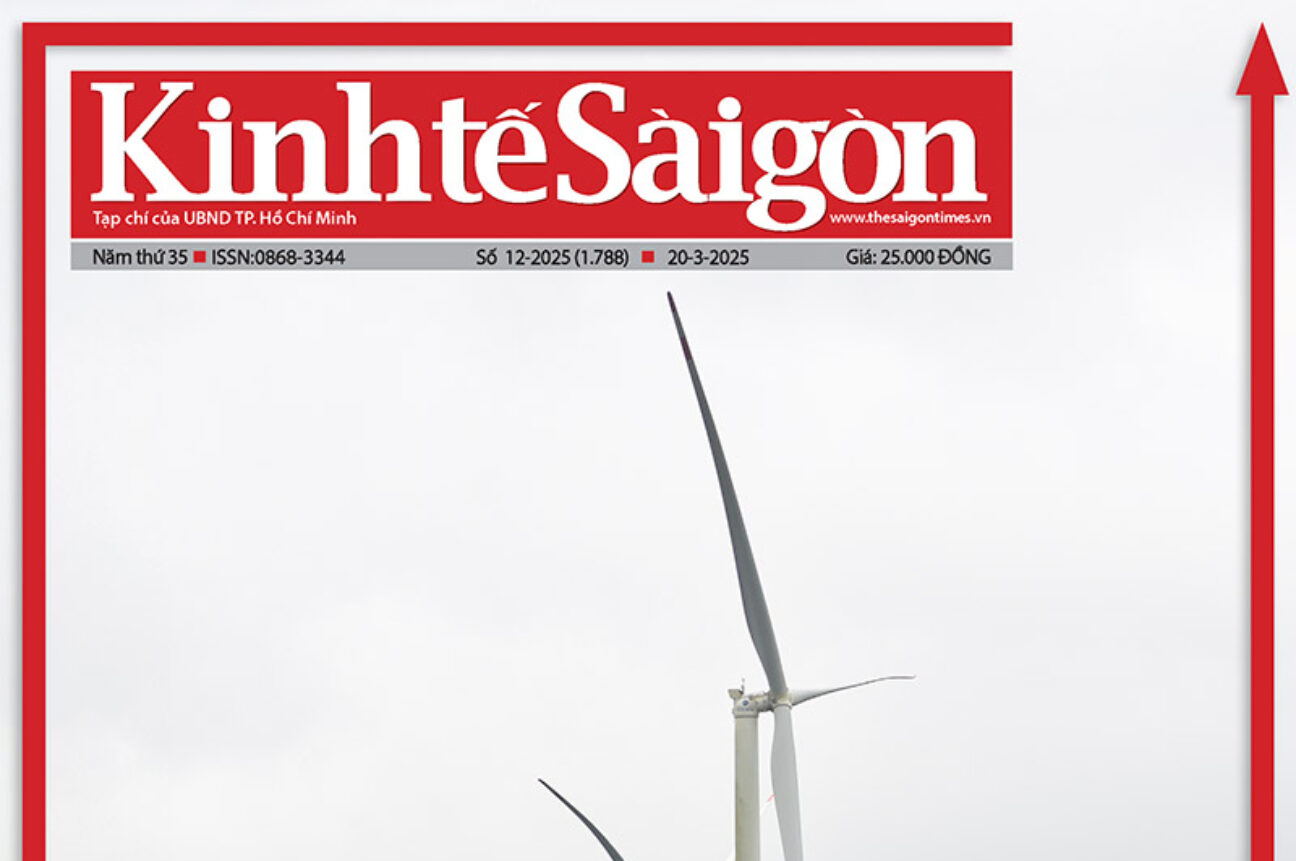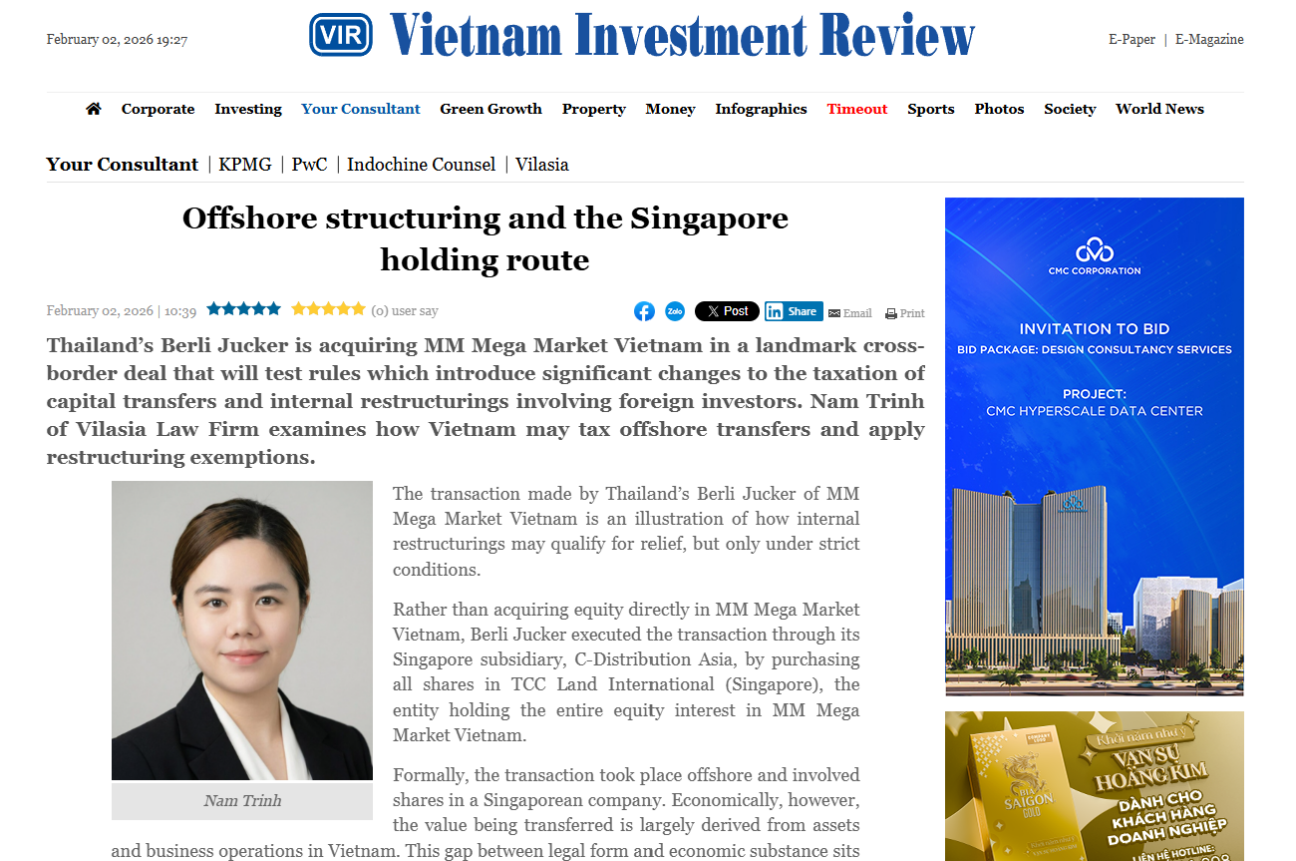Vilasia, in collaboration with The Saigon Times, presents an insightful article analyzing the opportunities and complexities surrounding the Direct Power Purchase Agreement (DPPA) model in Vietnam. As the global push for sustainability accelerates and ESG standards tighten, DPPAs offer Vietnamese businesses a strategic pathway to secure green energy, stabilize electricity costs, and strengthen competitiveness in global supply chains.
Below is the full article, originally published in Vietnamese in The Saigon Times on 20 March 2025. Read the Vietnamese version here.
DPPA Mechanism: A Significant Turning Point in Vietnam’s Energy Sector
In the context of global efforts toward sustainable development and carbon emission reduction, businesses in Vietnam are actively seeking solutions to secure cost-effective energy sources while maintaining an environmentally friendly corporate image. Many multinational corporations have imposed strict requirements on their supply chain partners to utilize renewable energy in order to meet ESG standards. In response to this pressure, the Direct Power Purchase Agreement (DPPA) mechanism has emerged as a strategic choice, enabling businesses to proactively select power sources and fostering the liberalization of the domestic electricity market.
Under DPPA, large power consumers may enter into long-term contracts with renewable energy generators, rather than relying solely on Vietnam Electricity (EVN). This mechanism allows businesses to lock in electricity prices, minimize price fluctuations and directly access green power. In doing so, businesses can obtain green certifications, meet stringent international market requirements, and enhance their competitiveness.
This article provides an overview of the DPPA mechanism, highlights its benefits and challenges, and offers practical solutions for businesses preparing for this new trend. The article also updates the replacement of Decree 80/2024/ND-CP with Decree 57/2025/ND-CP; however, the detailed provisions of the new decree are not yet covered. A more in-depth analysis of Decree 57 will be published in the next issue.
Table of Contents
BENEFITS AND POTENTIAL OF DPPA
Helping businesses achieve green certification
One of the most practical benefits of DPPA is the ability for businesses to obtain green certifications to meet environmental standards in export markets. This is particularly advantageous in sectors such as textiles, footwear, furniture, and processed agricultural products, where renewable energy use can create a significant competitive edge. For example, a garment manufacturer in Binh Duong recently signed a solar power purchase agreement, enabling the company to meet H&M’s “green” requirements and grow its EU export market share by 15% in 2024.
Stabilizing long-term energy costs
DPPA allows businesses to negotiate either fixed or flexible electricity prices with renewable energy plants, typically for terms of 5 – 20 years. This mitigates the risks associated with fuel price fluctuations and ensures budget stability. Amid rising fossil fuel costs, DPPA offers a long-term solution, enabling businesses to proactively manage energy costs.
Attracting investment in renewable energy
When enterprises proactively sign long-term green power contracts, renewable energy infrastructure investors are motivated to expand projects. Stable cash flows also help attract capital from international financial institutions, as investors increasingly prioritize ESG factors. Over time, a competitive retail electricity market facilitated by DPPA will become a magnet for foreign investment, positioning Vietnam as a regional clean energy center.
Driving competitive electricity retail market development
The DPPA mechanism represents a critical milestone in the roadmap for developing a competitive retail electricity market. Traditionally, businesses have been dependent on EVN. DPPA now allows them to contract directly with renewable energy generators, increasing transparency, encouraging technological innovation, providing more procurement options, and reduces monopolistic tendencies.
CHALLENGES IN IMPLEMENTING DPPA
While DPPA offers significant benefits, it remains a relatively new mechanism in Vietnam and presents several legal, technical, and financial complexities that businesses must carefully consider before participation.
Incomplete legal framework
While the legal foundation has been laid (initially via Decree 80, now superseded by Decree 57), detailed guidelines are still required, particularly regarding payment mechanisms, transmission fees, and price risk management. This lack of clarity could lead to disputes and implementation delays.
CfD Contract and risk allocation
The Contract for Difference (CfD) is the “backbone” of DPPA, where a fixed electricity price is set for over the term of the agreement. However, a lack of understanding around price adjustment mechanisms, risk allocation, and dispute resolution procedures can result in prolonged negotiations, impacting project timelines and costs.
Complexity in industrial zones
Many businesses operating in industrial zones already have exclusive power purchase agreements with management boards or infrastructure providers. Transitioning to DPPA requires renegotiating these agreements, which can lead to conflicts of interest, contractual penalties, or rejection. Businesses need to conduct a careful review and plan for contingencies.
Lack of transparency on fee structures
Clear guidance is still lacking regarding transmission fees, and contract management charges, system operation costs, etc., making it difficult for businesses to forecast the total cost of DPPA participation. This lack of transparency may cause hesitation among investors.
Personnel and legal knowledge requirements
DPPA participation requires a team well-versed in electrical engineering, spot market, legal knowledge, and international negotiation skills. Negotiating, monitoring contracts, and managing price fluctuations are all complex and resource-intensive, especially for small enterprises.
RECOMMENDED SOLUTIONS
Seeking Professional Consulting
Before participating, businesses should consult with independent experts or experienced consultants in energy, law, and electricity markets. This helps assess needs, risks, and design appropriate strategies. Early investment in consulting can prevent costly mistakes later.
Early negotiation with industrial zone management
Businesses in industrial zones should proactively engage with management boards or electricity retailers to adjust or supplement contract terms related to DPPA to avoid conflicts with existing agreements. In some cases, “parallel purchasing” – continuing to purchase electricity from the park while sourcing additional renewable energy via DPPA – may be possible if agreed.
Inter-Company Collaboration
Small and medium-sized enterprises can “combine” their electricity consumption to meet the minimum threshold, share consultancy costs, and enhance their negotiating power with energy producers. This approach not only eases the financial burden but also offers opportunities for learning and exchanging best practices in DPPA implementation.
Participation in Technical Support Programs
International organizations such as USAID, GIZ, and ADB are offering support for Vietnamese businesses in renewable energy. Participation in seminars, training, or pilot projects can help businesses improve knowledge, risk management, and DPPA implementation.
Step-by-Step Transition Roadmap
Instead of transitioning 100% of electricity demand to DPPA immediately, businesses can start with a small portion (10-20%) and gradually increase it. This phased approach allows for performance evaluation, market testing, and timely adjustments to business plans if needed.
Transparency and Coordination with Regulatory Authorities
Businesses, industry associations, and regulatory authorities should establish regular communication channels to address issues regarding fee structures or grid connection procedures. Continuous feedback and adjustments will help fine-tune DPPA implementation to meet market needs.
PROSPECTS FOR DPPA AND COMPETITIVENESS ENHANCEMENT
An inevitable trend in electricity market liberalization
DPPA is a crucial component in Vietnam’s electricity market liberalization roadmap, allowing multiple parties to directly trade electricity. Increased competition will drive innovation, improve service quality, and offer businesses greater flexibility in procurement.
A level for vietnam’s “green revolution”
Beyond its economic value, DPPA raises broader awareness of clean energy and encourages businesses and consumers to adopt “green” consumption practices. Renewable energy investments will continue to grow, bringing Vietnam closer to becoming a regional clean energy center.
Enhancing global supply chain position
Demonstrating renewable energy use through DPPA allows businesses to meet ESG criteria, earning recognition from international partners and potential export markets. It provides an opportunity to establish a “green” image within the value chain, enhance global connections, and access demanding markets such as the EU and the US.
The DPPA mechanism promises significant benefits both economically and environmentally, while paving the way for a more competitive, transparent, and sustainable electricity market. Although still in its early stages, DPPA has laid a crucial foundation, providing Vietnamese businesses with the opportunity to access green energy at stable costs.
During implementation, proactively staying updated on legal developments, preparing resources, and seeking professional support will enable businesses to fully leverage advantages and manage risks effectively. The replacement of Decree 80 with Decree 57 demonstrates the Government’s willingness to listen and adjust, creating a more favorable framework for businesses.







